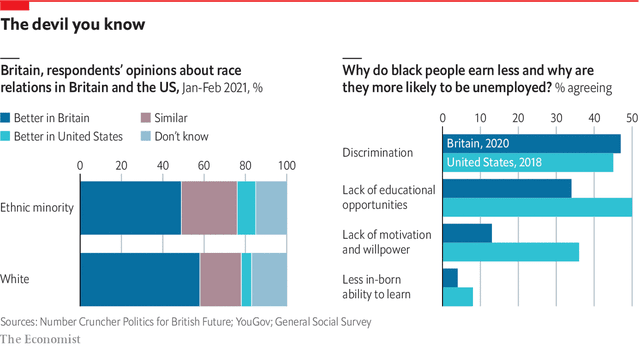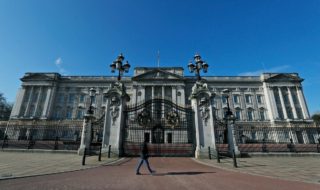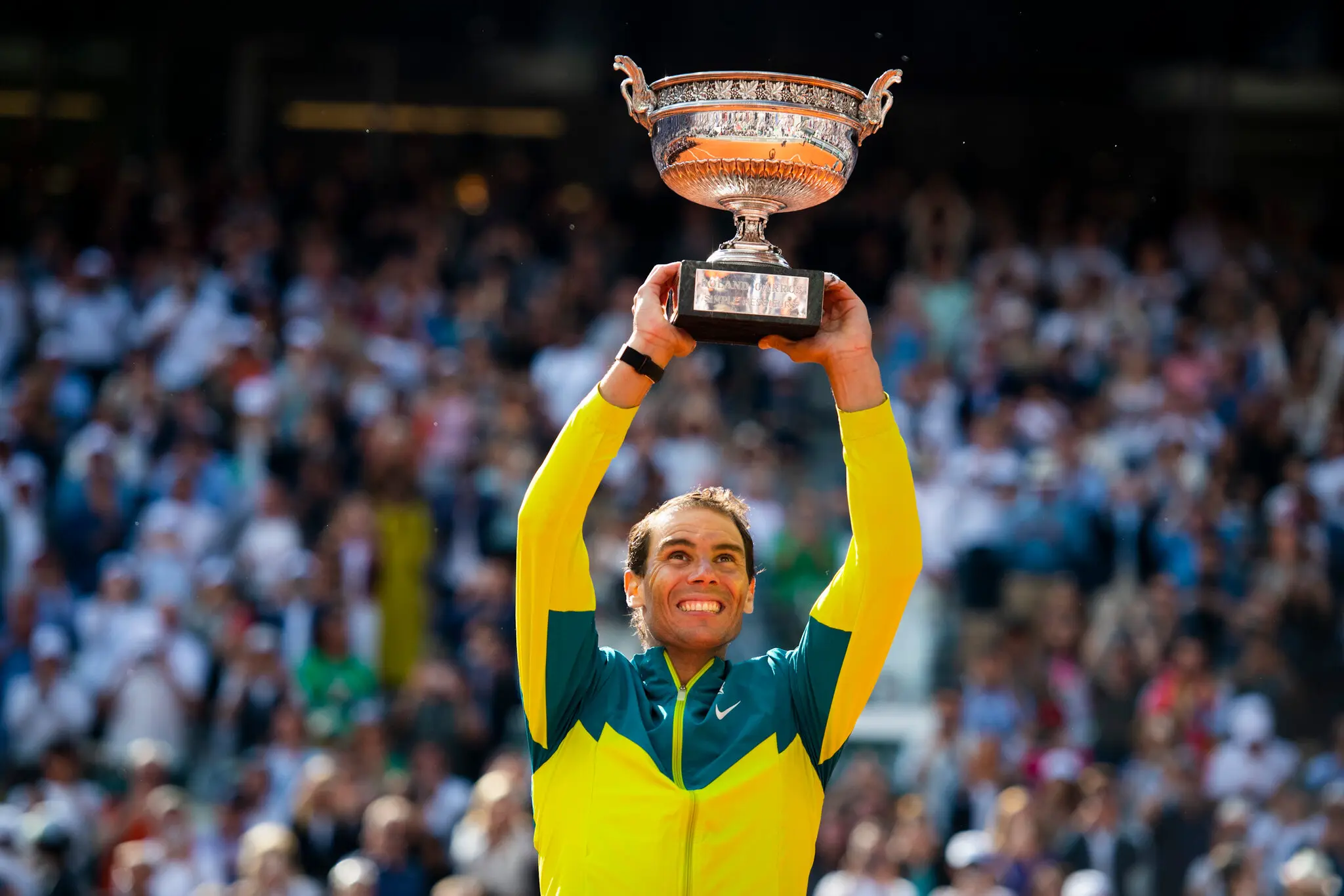The royal interview puts racism in Britain back in the spotlight
NOT LONG ago, any report on the state of race relations in Britain would have featured a large photograph of the Duke and Duchess of Sussex. According to a long line of commentators, their marriage in 2018 symbolised a country at ease with itself. “A reverend quoting Martin Luther King, a swaying black gospel choir, and a mixed-race duchess,” ran a typical headline, on Mail Online: “the day the monarchy embraced multicultural Britain’s future”.
In their interview with Oprah Winfrey, the couple offer a rather different commentary on race. They attributed their decision to quit Britain for America to the “bigoted” tabloid press and said that a member of the royal family had queried how dark their baby’s skin would be.
Britons think theirs a less racist society than America’s. That is truer of white than non-white Britons, but holds for a plurality of ethnic minority voters (see top chart, left panel). Britons are less likely than Americans to cite racist explanations for disparities in income and employment rates (top chart, right panel) and about as likely to approve of their country’s increasing diversity. On both sides of the Atlantic people are more relaxed about mixed marriages than in the past, but even more so in Britain, where mixed-race people are also more likely to marry a white partner than in America. Black Britons also report less racial harassment than their peers in most other European countries (see second chart).
But white and black Britons see things differently. A poll for The Economist last year found that 31% of white Britons reckon Britain “a racist country” and 46% of ethnic minorities do. There is a similar gulf in attitudes towards the behaviour of the police. Britain may not be America, but it is not a model of harmony.
By The Economist






